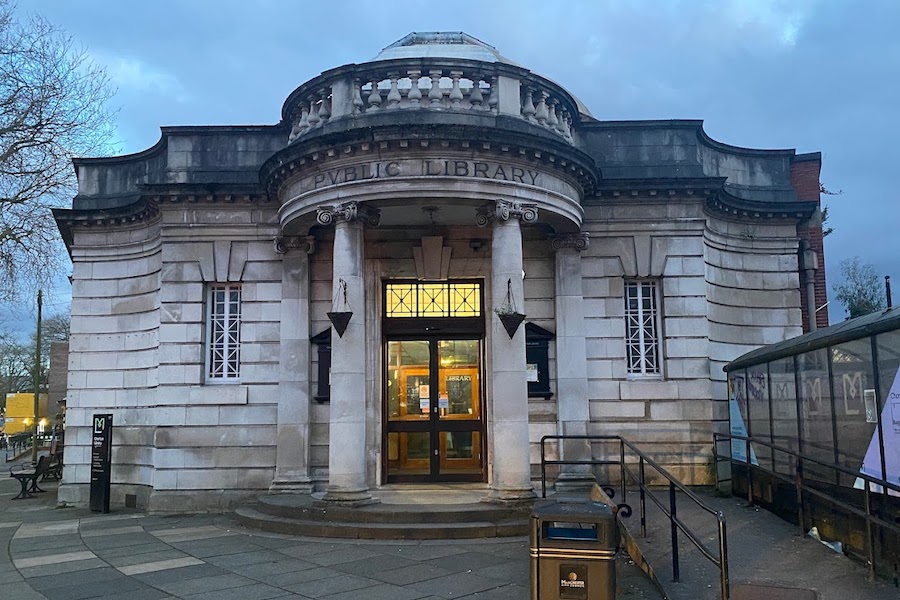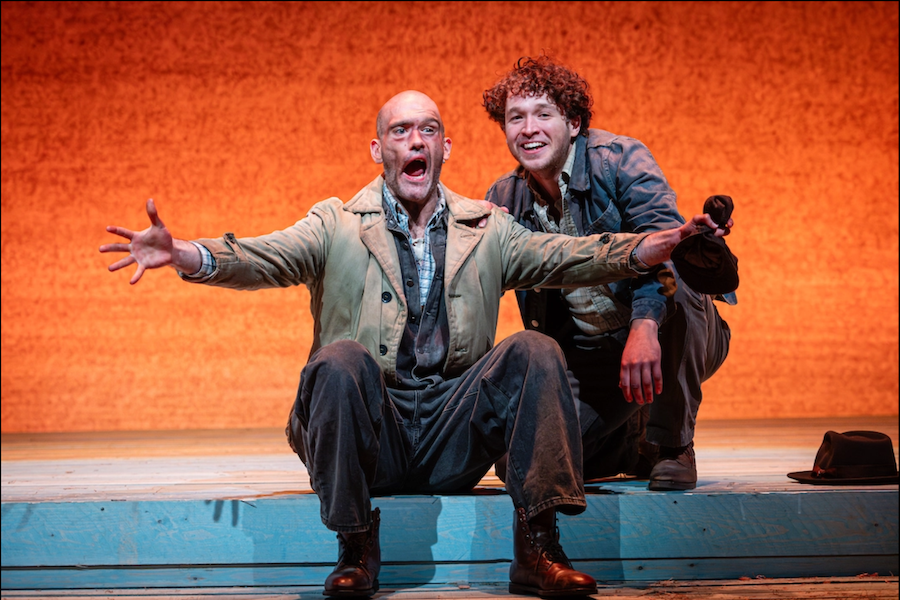Here’s how Tony Ingham and Brian Beech wrote Piccadilly Radio’s 50th-anniversary story
- Written by Thom Bamford
- Last updated 2 years ago
- Community, Featured, History
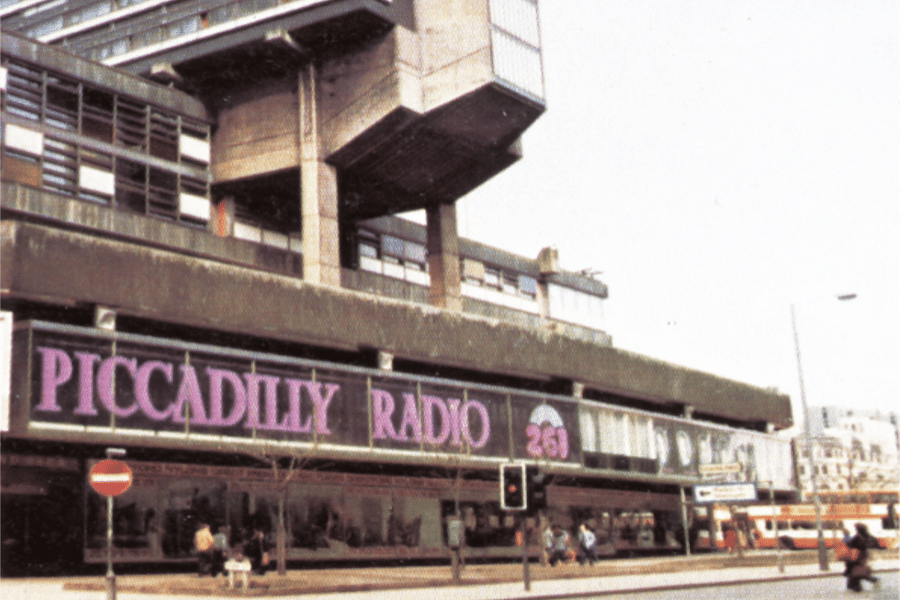
Piccadilly Radio, which first graced the airwaves of Greater Manchester in April 1974, undoubtedly falls into the latter category.
As it marks its 50th anniversary, the story of Piccadilly Radio comes to life in a captivating book titled “For the Record – Celebrating Piccadilly Radio’s 50th Anniversary,” penned by Piccadilly Radio veteran Tony Ingham and co-author Brian Beech.
This book not only chronicles the station’s remarkable journey but also offers an insider’s perspective on the people, the music, and the unforgettable moments that made Piccadilly Radio a cherished part of the community’s life.
It will be released on October 1st, ahead of their fiftieth anniversary on April 2nd.
You can pre-purchase the book on amazon here
In this exclusive interview, we sit down with Tony Ingham and Brian Beech, key figures in Piccadilly Radio’s history, who take us on a nostalgic journey through the station’s pivotal years.
Join us as we explore the iconic jingles, the beloved presenters, the station’s impact on Greater Manchester, and the enduring legacy of Piccadilly Radio.
Congratulations on the release of “For the Record.” What inspired you and Brian Beech to write this book, and what do you hope readers will take away from it?
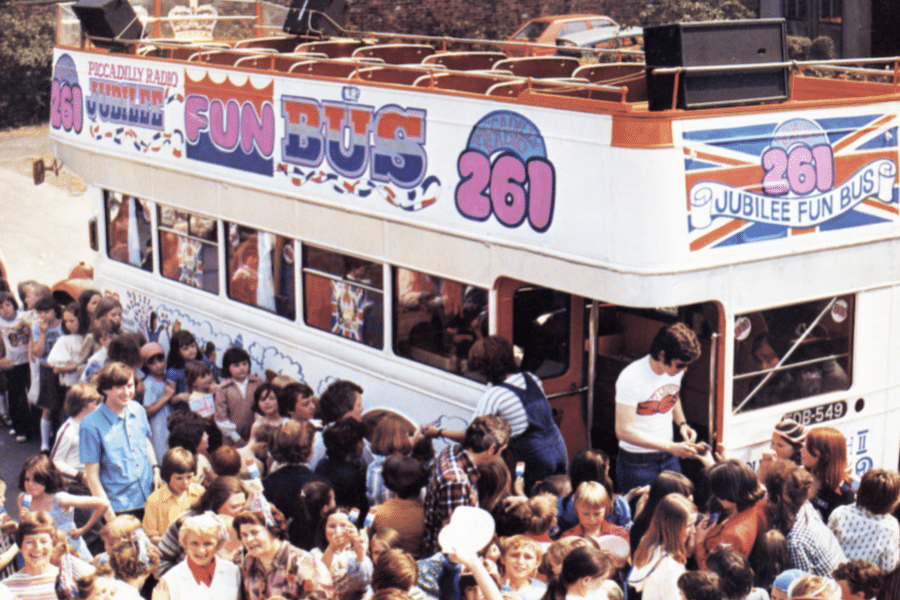
Brian: “Tony was the driving force behind the book.
“He’s the person who put Chris Evans, Timmy Mallett and Gary Davies on air, to name but a few.
“My contribution to Piccadilly Radio’s success was somewhat less significant, but I did have an English degree and had just got an MA in Creative Writing, so Tony thought I would at least put the apostrophes in the right place.
“Tony was my boss at the radio station at one time and we have been mates for a long (long!) time, so writing the book was a lot of fun and took our minds off United’s results.
“Piccadilly Radio was the soundtrack to many people’s lives and we hope that the book will take them back in time – to the music, the personalities and the local and national events of the 70s and 80s.
“The response from listeners has been fantastic and everyone seems to have a favourite memory, from being under the bedclothes with Dave Ward, to ‘Oh no!’ and ‘It’s a goal!’ to ‘Have you got any ABBA Sweeney?’”
In your opinion, what were the qualities that made Piccadilly Radio stand out in the competitive radio landscape of that era?
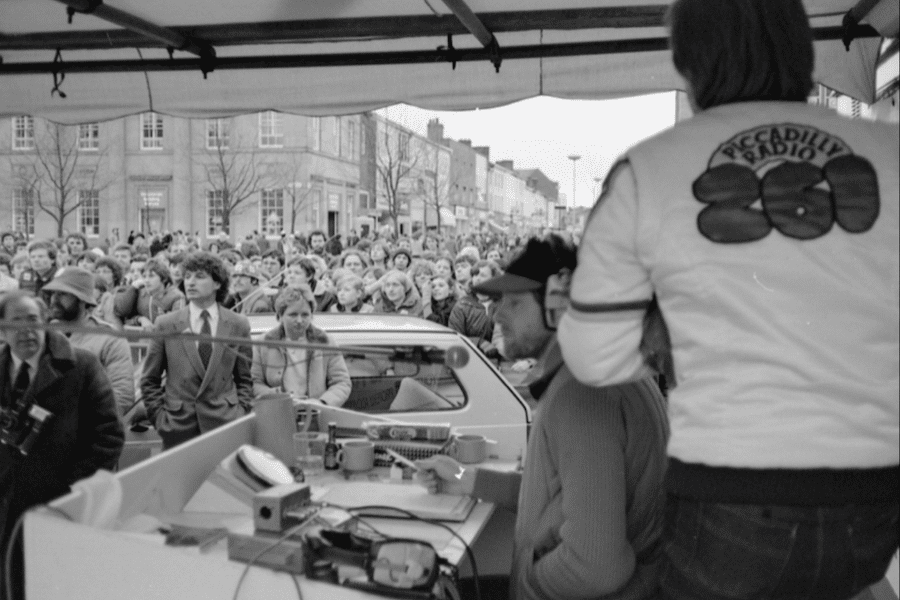
Tony: “The inspiration behind writing the book was the upcoming 50th anniversary.
“We realised this during a colleague’s funeral, Colin Walters, the original program controller, about three years ago.
“We decided it was essential to document this story before it got lost.
“Writing the book was a process.
“Brian and I would start, then he’d suggest putting it away for three months.
“We’d take it out, and often, it wouldn’t seem quite right.
“But eventually, we got there. Six months ago, I thought we were finished, but Brian suggested we put it away again.
“He realised something was missing – the perspective of the listeners.
“We asked for their memories, and their stories are now integrated throughout the book, making it more engaging and showing what the radio station meant to people.
“Back in 1974, there were only four national radio stations, including Radio Manchester and us.
“It wasn’t as competitive as today due to the absence of the internet.
“People listened to the radio extensively back then, making it a significant part of their lives. What set us apart was our Northern personality.
“We featured local personalities with strong, humorous, and clever traits, catering to the Northern audience’s preferences.
“Today, programming a radio station is much more challenging due to the vast number of stations and formats. It’s nearly impossible to replicate what we did back then.
“We were fortunate to start in a different era when daytime TV didn’t exist, allowing us to be more innovative and have fun.”
Piccadilly Radio holds a special place in the hearts of many listeners. Can you share a personal memory or story that encapsulates the station’s unique spirit?
Brian: “There’s a story in the book that I think is a good example of this.
“My wife and I both sent letters into ‘Making Friends’ hosted by John Mundy in the early 80s.
“I remember meeting a female spot welder from Altrincham and a snooty nurse from Salford who didn’t appreciate my choice of a night out at Pembroke Halls in Walkden watching a comedian.
“Both were disasters, but it didn’t stop me sending a letter to ‘Janet from Wigan’ and after three months and some disastrous dates herself, she rang me, and we arranged to meet on a wintry night in January 1982.
“We met and got on like we had always known each other and had so much in common we even put the same song on the pub jukebox.
“We had both been married before although we were only in our 20s so in no rush to get serious, but after three months I proposed, and Janet (Janice, actually!) accepted, and we have just celebrated our fortieth anniversary back in May of this year.
“I was going through some paperwork recently and came across the original letter I wrote to Janice back in 1981 using my middle name John.
“So that’s how ‘Janet’ and John met, through Piccadilly Radio.”
The book covers the period from 1974 to 1987. What were some of the defining moments or milestones during this time for Piccadilly Radio?
Tony: James Stannage, a former broadcast assistant and teacher, returned from the United States, where he had been listening to a Shock Jock.
“He approached Colin and said, “I could do that.” We decided to put him on air as a shock jock, and the reaction from the audience was astonishing.
“It was at that moment that we realised we could do something unprecedented by featuring these larger-than-life personalities.
“We understood that radio was more than just introducing records; it could be a platform for unique and engaging content.”
You mentioned that Piccadilly Radio nurtured both national and local personalities. Can you share a few stories about some of these personalities and their impact?
Brian: The station spawned the careers of national personalities such as Chris Evans, Timmy Mallett, Gary Davies, Mark Radcliffe, Andy Crane, Steve Penk and Andy Peebles, plus a host of journalists, TV and film producers, businessmen women and entrepreneurs.
“At the same time, it nurtured hugely popular local personalities including Susie Mathis, Phil Wood, Dave Ward, Mike Shaft, Pete Baker, James Stannage, Tim Grundy, Becky Want, Mike Sweeney and Stu Allen.
“They became part of listeners’ daily lives. Piccadilly Radio’s influence extended beyond the airwaves.”
The book promises anecdotes and self-deprecating stories. Could you share one humorous or memorable anecdote from your time at the station?
Brian: “Live radio was not without its potential disasters, but the ‘seven seconds’ delay’ was always available to ‘dump’ what was being broadcast, to avoid the listener being subjected to some profanity or some sort of sexual titillation.
“Phone-ins were part of Piccadilly’s DNA – sport, medical, political, gardening, DIY. One evening, Tom Tyrell hosted a DIY phone-in.
‘‘228 6262 for all your DIY queries. We’re here until seven o’clock, so phone now. 228 6262.’’
“In the master control room, a bored producer i.e., myself, was putting calls through without much vetting.
“There was no need for the ‘seven seconds’ delay’.
This was a DIY phone-in, so nothing contentious or controversial would be said.
‘‘Okay, on the line I’ve got Jim from Wythenshawe. How can our DIY expert help you, Jim?’’ Tom asked.
‘‘Well, it’s this piece of wood, Tom,’’ Jim replied.
‘‘Okay and what is it about this piece of wood, Jim?’’ Tom asked again.
‘‘I’ve got me d**k stuck in it, Tom …’’ came the reply.
“Quarter to seven on a Tuesday night and some bloke in Wythenshawe has got his d**k stuck in a piece of wood.”
As you reflect on Piccadilly Radio’s legacy, what do you believe is the station’s lasting impact on the radio industry and Greater Manchester?
Brian: “Good question.
“Ask anyone of a ‘certain age’ what their memories of Piccadilly Radio are and, without exception, they are always fond and positive memories.
“Think of the talent that came through the ranks at Piccadilly. Not just presenters, but film producers, award-winning journalists, entrepreneurs…and me and Tony.
“Obviously, the radio industry has changed dramatically in the past 50 years, but Piccadilly Radio was in the right place at the right time with the right people. One listener, Stuart Littlewood, sums it up perfectly:
“I remember fondly the days of Piccadilly Radio in Manchester.
“Local radio played such an important role in our lives. It gave us our local travel and weather information.
“It gave local businesses the opportunity to advertise and reach a wider market.
“It informed us of major concerts and shows that were taking part in the Northwest.
“It made us feel ‘connected’ in a way that national radio could not deliver.
” It also introduced us to some great presenters who were real characters with their own style. They became our friends and made us listeners feel special, as no one else outside the Northwest could hear how great they were.
“We would dance around the kitchen to new songs, then soon enough they’d be playing in the nightclubs and discos. Writing these words whilst listening to these classic songs makes me want to hear this music again and again.’ – Stuart Littlewood
Can you tell us about some of the challenges and successes in the early days of Piccadilly Radio, from winning the franchise to building its audience?
Tony: “When it comes to the early days of Piccadilly Radio, winning the franchise and building our audience, it was quite a challenge.
“In 1974, the government was facing the miners’ strike, resulting in a three-day workweek and power shortages.
“We were constructing the station during this difficult period. Our studios were incomplete, and we relied on paraffin heaters to keep warm. However, these challenges instilled a sense of camaraderie and a siege mentality among us.
“We built strong bonds and trusted each other to get the job done. Egos faded away quickly.
“Despite being in our twenties and many of us having never worked in radio before, we instinctively knew how the station should operate.
“We had the flexibility to turn ideas into reality swiftly.
“There was a period known as the “Golden Years” when Piccadilly Radio achieved tremendous success.
“We had a lineup of talented presenters, including Susie Mathis, Mike Sweeney, and Timmy Mallet.
“For five years, we were the biggest thing in town, and it seemed like everything we did worked. It was a remarkable time for the station.
As you reflect on Piccadilly Radio’s legacy, what do you believe is the station’s lasting impact on the radio industry and Greater Manchester?
“Piccadilly Radio’s legacy lies in breaking the mould of traditional music radio.
“We introduced regional personalities and made radio more accessible and visible to the community.
“We were everywhere, broadcasting from various locations.
“We showed that radio could be more than just music; it could be a significant part of people’s lives and the community.”
Piccadilly Radio’s 50th-anniversary celebration brings to light the remarkable journey of a station that not only revolutionised the radio industry but also became an integral part of Greater Manchester’s cultural fabric.
“For the Record – Celebrating Piccadilly Radio’s 50th Anniversary” is a nostalgic time machine that transports readers to an era of iconic jingles, beloved presenters, and unforgettable moments.
It promises to be a fantastic read.
- This article was last updated 2 years ago.
- It was first published on 28 September 2023 and is subject to be updated from time to time. Please refresh or return to see the latest version.
Did we miss something? Let us know: press@ilovemanchester.com
Want to be the first to receive all the latest news stories, what’s on and events from the heart of Manchester? Sign up here.
Manchester is a successful city, but many people suffer. I Love Manchester helps raise awareness and funds to help improve the lives and prospects of people across Greater Manchester – and we can’t do it without your help. So please support us with what you can so we can continue to spread the love. Thank you in advance!
An email you’ll love. Subscribe to our newsletter to get the latest news stories delivered direct to your inbox.
Got a story worth sharing?
What’s the story? We are all ears when it comes to positive news and inspiring stories. You can send story ideas to press@ilovemanchester.com
While we can’t guarantee to publish everything, we will always consider any enquiry or idea that promotes:
- Independent new openings
- Human interest
- Not-for-profit organisations
- Community Interest Companies (CiCs) and projects
- Charities and charitable initiatives
- Affordability and offers saving people over 20%
For anything else, don’t hesitate to get in touch with us about advertorials (from £350+VAT) and advertising opportunities: advertise@ilovemanchester.com
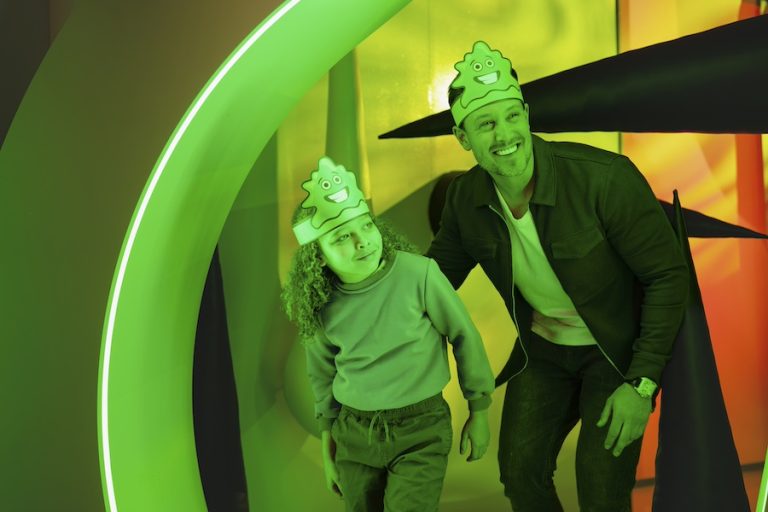
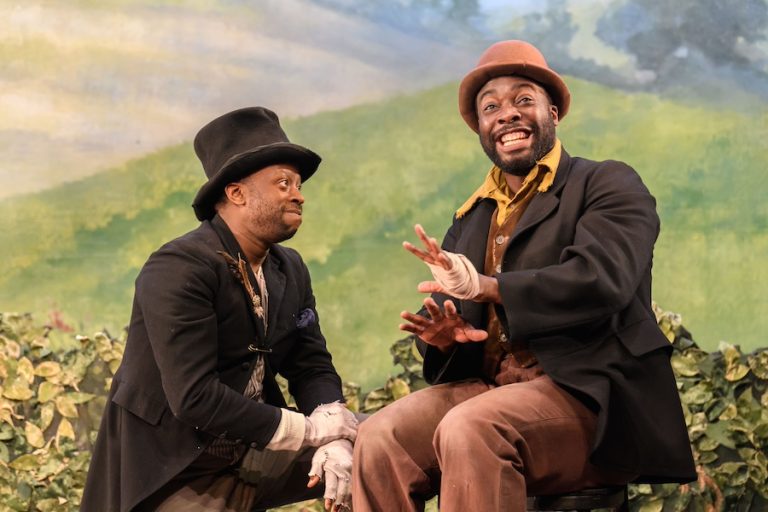
Review: Tambo & Bones at HOME is ‘ambitious, bold, gutsy…. and terrific’

Review: JB Shorts 26 at 53two is ‘a five-star showcase of northern talent’









